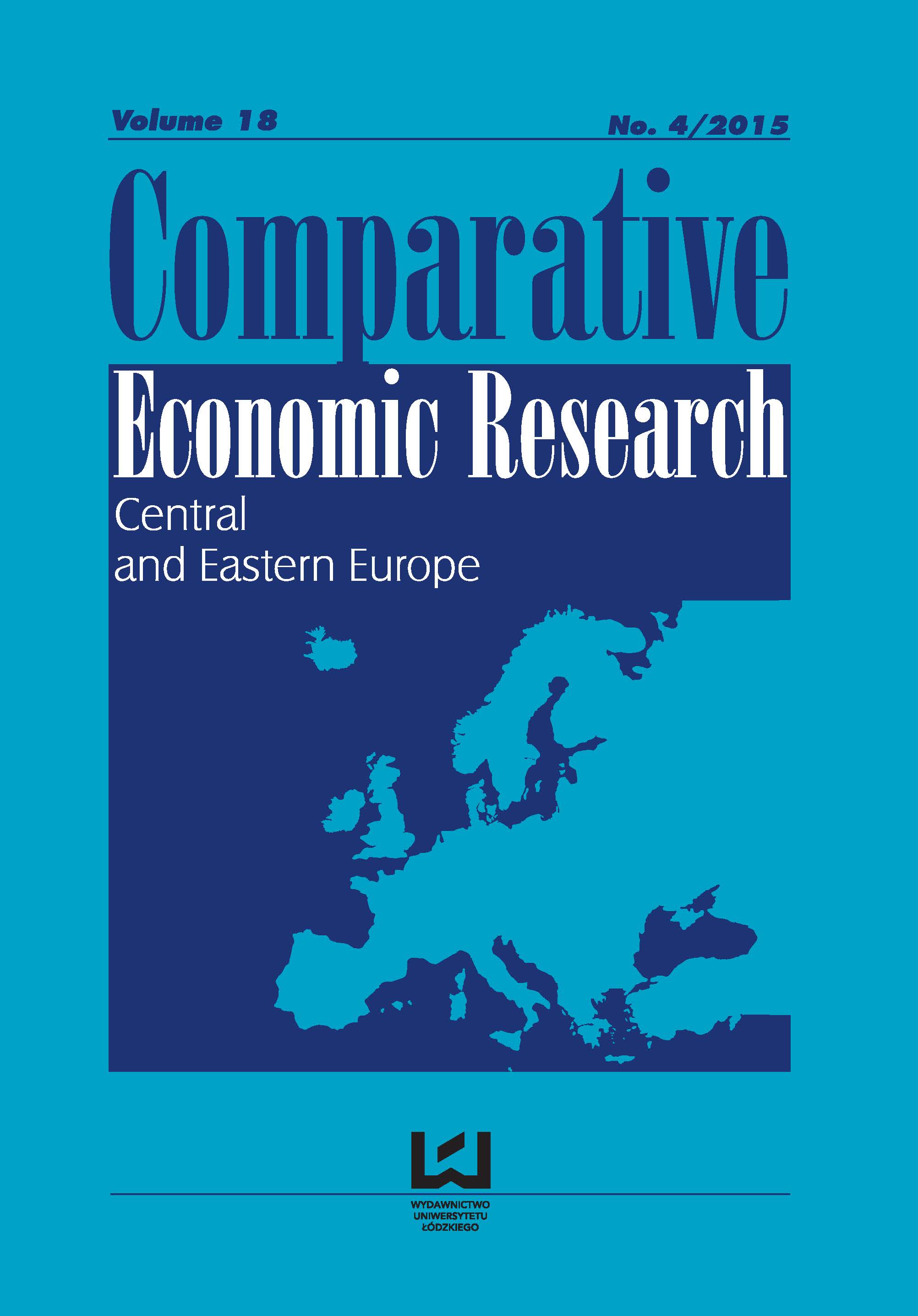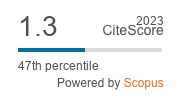Economic Factors Concerning The Migration Of The Best Educated Workers. The Case Of College Teachers
DOI:
https://doi.org/10.1515/cer-2015-0031Keywords:
international migration, economic factors of migration, university teacher’s migration, highly skilled workersAbstract
The migration flow of highly skilled workers is a growing and changing issue, especially under the economic conditions in recent years. This research focused on the migration of university teachers, a highly skilled collective responsible for the training of future skilled workers and also the innovation of a country through their research. An empirical analysis of migration flow of this collective and its relation with economics factor in Europe in the last decade showed that earnings are a key factor explaining variations in the migration flow of university teachers over time. Furthermore, considering the real purchasing power and the effect of personal taxes, it would be possible to show which countries are more relevant to the decisions of this collective on migration. Thus, the higher the purchasing power, the greater the number of university teachers who migrate to a given country. Hence those countries that keep or increase the earnings level of university teachers, especially during an economic depression, can attract or maintain highly skilled workers. In addition, the results showed that unemployment is a push factor for migration for these best educated workers.
Downloads
References
Arah O.A., Ogbu, U.C, and Okeke, C.E. (2008), Too Poor to Leave, Too Rich to Stay: Developmental and Global Health Correlates of Physician Migration to the United States, Canada, Australia, and the United Kingdom, 'American Journal of Public Health', no. 98. doi: 10.2105/AJPH.2006.
Google Scholar
Aceleanu, M.I. (2011), Indicators of migration and their relevance to employment and quality of life analysis. Romania's situation, 'Management & Marketing Challenges for the Knowledge Society', no. 6.
Google Scholar
Bagdanavičius, J. and Jodkoniene, Z. (2008), Brain Drain from Lithuania: the Attitude of Civil Servants, 'Inžinerinė Ekonomika-Engineering Economics', no. 57.
Google Scholar
Boman, A. (2011), Does migration pay? Earnings effects of geographic mobility following job displacement, 'Journal Population Economics', no. 24. doi: 10.1007/s00148-010-0335-
Google Scholar
Čiarnienė, R. & Kumpikaitė, K. (2011), International Labour Migration: Students Viewpoint, 'Inžinerinė Ekonomika-Engineering Economics', no. 63.
Google Scholar
Chun, Y. and Griffith, D. A. (2011), Modelling Network Autocorrelation in Space-Time Migration Flow Data: An Eigenvector Spatial Filtering Approach, 'Annals of the Association of American Geographers', no. 101. doi: 10.1080/00045608.2011.561070
Google Scholar
Daugeliene, R. and Marcinkeviciene, R. (2009), Brain Circulation: Theoretical Considerations. 'Inžinerinė Ekonomika-Engineering Economics', no. 22.
Google Scholar
De Haas, H. (2010), Migration transitions: a Theoretical and empirical inquiry into the developmental drivers of international migration, International Migration Institute, 24, 11th.
Google Scholar
Dreher, A. and Poutvaara, P. (2005), Student Flows and Migration: An Empirical Analysis, Denmark: Centre for Economic and Business Research (CEBR) Copenhagen Business School, discussion paper #1612.
Google Scholar
Education, Audio-visual and Culture Executive Agency (EACEA), European Commission. Key data on education in Europe 2012 (2012). Retrieve from http://eacea.ec.europa.eu/education/eurydice
Google Scholar
European Commission. Eurostat (2015). Economic statistics. Retrieved from http://epp.eurostat.ec.europa.eu/portal/page/portal/eurostat/home
Google Scholar
European Commission. Eurydice (2012). Retrieved from http://eacea.ec.europa.eu/education/eurydice/index_en.php
Google Scholar
Fix, M., Papademetriou, D., Batalova, J., Terrazas, A. Yi-Ying Lin, S. and Mittelstadt, M. (2009), Migration and the Global Recession, Washington, DC and London: Migration Policy Institute and the British Broadcasting Corporation.
Google Scholar
Glinskienė, R. and Petuškienė, E. (2009), The Impact of the Global Economic Crisis on Processes of Lithuanian Remigration and “Brain Drain”, 'Economics and Management', no. 1.
Google Scholar
Hawthorne, L. (2009), The growing global demand for students as skilled migrants’. In Bertelsmann Stiftung Migration Policy Institute (Eds.). Talent, Competitiveness and Migration (362-399). Belgium: The Transatlantic Council on Migration.
Google Scholar
Jennissen, R. (2003), Economic determinants of net international migration in Western Europe, European Journal of Population, no. 19.
Google Scholar
Kaczmarczyk P. and Okólski, M. (2008), Economic impacts of migration on Poland and the Baltic states, Norway: Centre of Migration Research University of Warsaw and Fafo.
Google Scholar
Kilijonienė, A., Simanavičienė, Ž. and Simanavičius, A. (2010), The evaluation of social and economic development of the region, 'Inžinerinė Ekonomika-Engineering Economics', no. 21.
Google Scholar
Krisciunas, K. and Greblikaite, J. (2007), Entrepreneurship in Sustainable Development: SMEs Innovativeness in Lithuania, 'Inzinerine Ekonomika-Engineering Economics' no. 4.
Google Scholar
Kumpikaitė, V. and Žickutė, I. (2012), Synergy of Migration Theories: Theoretical Insights, 'Inžinerinė Ekonomika-Engineering Economics', no. 23. doi: 10.5755/j01.ee.23.4.1240
Google Scholar
Martinoia, M. (2011), European Integration, Labour Market Dynamics and Migration Flows, The European Journal of Comparative Economics, no. 8.
Google Scholar
Mihi-Ramírez, A. and Kumpikaitė, V. (2013), The European migration flow in a context of deterioration of economic factors, The case of Spain. Economics and Management, no. 18.
Google Scholar
Mixon G. Jr (1992), Factors Affecting College Student Migration across States, 'International Journal of Manpower', no. 13. doi: 10.1108/EUM0000000000900
Google Scholar
Organisation for Economic Cooperation and Development (OECD) (2015), Economic statistics. Retrieved from http://stats.oecd.org/
Google Scholar
Papademetriou, D. G. and Sumption, M. (2011), Eight policies to boost the economic contribution of employment-based immigration. Migration Policy Institute http://www.migrationpolicy.org/pubs/competitivenessstrategies-2011.pdf
Google Scholar
Rey, A. and Cebrán M. (2010), Population replacement and migration in two Spanish regions during the Twentieth century, 'Population-E', no.65.
Google Scholar
Reher, D. and Requena M. (2009), The National Immigrant Survey of Spain: A new data source for migration studies in Europe, 'Demographic Research', no. 20. doi: 10.4054/DemRes.2009.20.12
Google Scholar
Schierup, C., Hansen, P. and Castles, S. (2006), Migration, Citizenship and the European Welfare States. Oxford, Oxford University Press.
Google Scholar
Schulzek, N. (2012), The impact of welfare systems on immigration: An analysis of welfare magnets as a pull-factor for asylum seekers and labour migrants. Migration Studies Unit. England: London School of Economics and Political Science. England, working paper #2.
Google Scholar
Stulgienė, A. and Daunorienė, A. (2009), Influence of Migration on Equilibrium of Labour Force Market, 'Economics and Management', no. 14.
Google Scholar
Van der Gaag, N. and Van Wissen, L. (2008), Economic determinants of internal migration rates: A comparison across five European countries, 'Journal of Economic and Social Geography', no. 99.
Google Scholar
Vojtovich, S. (2013), The Impact of Emigration on Unemployment in Slovakia, 'Inzinerine Ekonomika-Engineering Economics', no. 24.
Google Scholar
Zhan, K. H. and Song, Z. (2003), Rural-urban migration and urbanization in China: Evidence from time-series and cross-section analyses, 'China Economic Review', no. 14
Google Scholar
Zimmermam, K. F. (1996), European Migration: Push and Pull, 'International Regional Science Review', no. 19.
Google Scholar
Downloads
Published
How to Cite
Issue
Section
License

This work is licensed under a Creative Commons Attribution-NonCommercial-NoDerivatives 4.0 International License.











